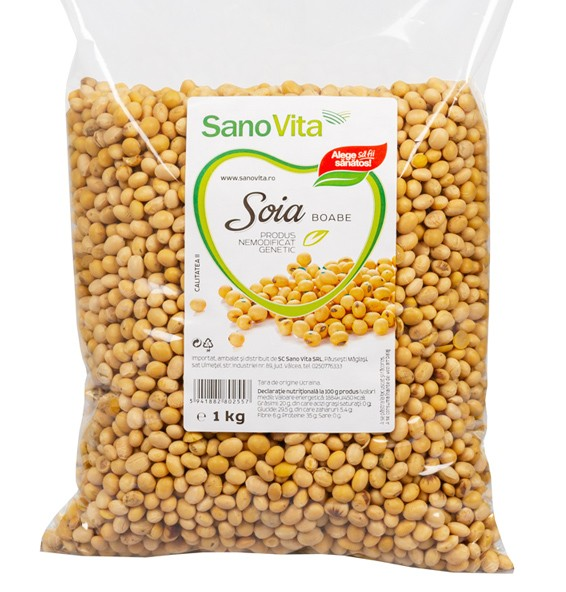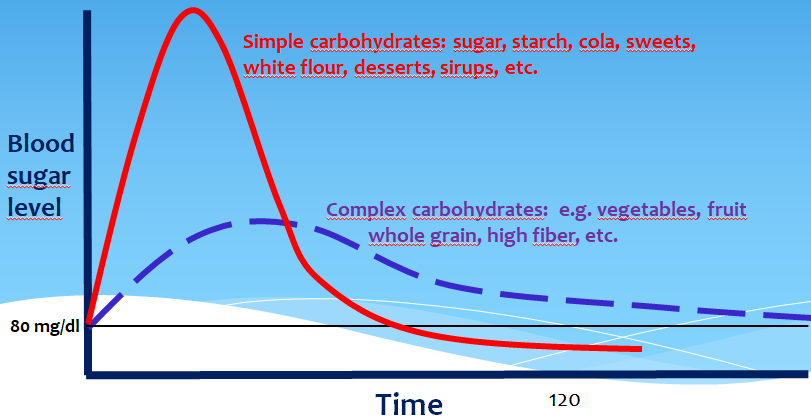Blood tests after switching to healthy eating
Hi,
11 months ago I started to care about healthy food because my cholesterol levels were high. You can see in the picture attached. Until then, I ate sweets, refined foods and very little fruits. I was so scared that I took Crestor (cholesterol medicine) for 3 months (16 December 2017 - 22 March 2018). It brought my cholesterol almost to normal levels. Then I say: "Ok, now let's see if I can keep them normal only by eathing healthy". I made the following changes: I completely removed the sweets and refined sugar, bread and oil. I started to eat more vegetables, I added fruits, nuts and seeds, I introduced whole wheat bread and fish (sardines, herring, salmon). I started doing sports. I never drink Coke, eat chips or animal saturated fat, neither now nor before, only lean pork and chicken.
As you cand see, now, after 7 months I made my blood test again and my Total Cholesterol is just a little over the normal limit but bad cholesterol (LDL) is still high. ![]() Also, HDL dropped a little (and I was eating more Omega 3 foods that I eat before).
Also, HDL dropped a little (and I was eating more Omega 3 foods that I eat before).
Before I ask you what can I do about this cholesterol I want to ask you something that I'm more afraid of: blood sugar (glycemia) ! This not make sense. When I was eating added sugar and cakes, my blood sugar was 84 ! After 3 months of healty eating it increased to 92, and now, after 11 months it is 98 (very close to the limit) ! Every time I make my blood test, it was rising. Now it's in normal limit but if this rising is maintained, the next time I will have diabetes ! What the heck I've done !? Why is this happening ? Is processed cakes with added sugar better than raw fruits ?? And I eat a lot of fibre also. Do you think should I worry about this ? When I last done my blood tests, in the evening before, at 22 o'clock, I ate some fruits (not much) and a slice of whole bread as carbs. And then I made my tests after 12 hours, at 10 o'clock in the morning. Do that matter so much ? If so, what should I do next time, so that my blood test be accurate ?
P.S: I am 38 years old, 75kg and 1.81 m.

I apologise for my misspellings, as English is not my native language.
Comments
-
-
Hi @Marus
I think the first step is to discuss your concerns with your MD and have him/her help interpret the results. Second, it's important to remember that our blood sugar and cholesterol are influenced by more than just diet. If you don't already know, I would ask about family history; having a first degree relative with heart disease under the age of 50 (men) or 65 (women) can double your risk for heart disease. In this situation, you may be predisposed to elevated cholesterol levels, even if you are doing everything right (which it sounds like you are!). Also, keep in mind that people still have heart attacks, even when cholesterol is normal. Lifestyle plays a huge role in disease risk.
Regarding your actual levels, your blood sugar is still in the normal range... Was this fasting or random? If random, it's completely normal. If it's a fasting blood glucose, it's trending high, but STILL normal. If insulin is working normally, it shouldn't matter where sugar comes from, as your body can produce/use insulin effectively.
You definitely should keep an eye on thyroid since elevations in thyroid (indicating hypothyroidism) can cause rises in LDL cholesterol. You're total LDL cholesterol is in the higher range but rest assured, there are things you can do to help lower it. The best dietary approach I've seen for controlling cholesterol is called the portfolio diet. This isn't a diet per se, but includes 4 components to help lower cholesterol: soluble fibre, soy protein, almonds, plant sterols (will need to purchase these). Each component can lower LDL cholesterol by 5-10%, with an additive effect. You can find out more information about it here:
https://www.ccs.ca/images/Images_2017/Portfolio_Diet_Scroll_eng.pdf
Let me know if you have any follow-up questions!
Kind regards,
Susan Macfarlane, MScA, RD
Registered Dietitian Nutritionist
cronometer.com
As always, any and all postings here are covered by our T&Cs:
https://forums.cronometer.com/discussion/27/governing-terms-and-disclaimer -
Thank you, @Susan_RD_101
Unfortunately, I do not have a doctor to talk about this. Here, where I live, it's a little complicated when you get sick. My doctor is available from December. And there is no dietitian, just general medicine. Anyway...All my four grandparents died, but not from heart diseases (arteriosclerosis). I only had a fat grandmother, but the rest were all lean. My father and mother are lean too, and they have normal cholesterol levels. I don't know what rises my cholesterol, but I think that a possible cause can be another medicine that I take: Olanzapine. I started taking this in 2011 when I had a depression. Now I'm fine but I must take 1/4 (2.5mg) of the initial dose (10mg), because I can't sleep without it. I heard that it can raise cholesterol. And before I take it, 7 years ago, I had just 200 total cholesterol.
I am already eating some of the portofolio diet foods, but I will try to add them all. Thanks for the tip ! One thing I have to ask you. I see that this diet include soy. A year ago, when I started to worry about healthy nutrition, I read many articles saying that soy is not good, because almost all of it is genetically modified and additionally it has some substances that mess with the thyroid gland. And since then I'm very afraid of soy. What do you think ? I saw that a lot o people eat soy in America. I do not know how it is there, but I have heard that in the European Union (where I live), genetically modified products are forbidden, and maybe the one I find in stores is good to eat, but I don't know about the other issue, with the thyroid.
Regarding my blood sugar test, it was after fasting 12 hours.
I have heard that when someone is suspected of having diabetes, additional tests are being done to see if insulin works properly. Can you please tell me what these tests are, so I can study more about them ?(It took me an hour to write this.
 It's hard for me to write in english.)
It's hard for me to write in english.)I apologise for my misspellings, as English is not my native language.
-
Hi @Marus
Your English is great! I'll make sure to write as clear as possible to save you time using Google translate.
Are you okay telling me what country you live in? I may be able to find a nutrition professional in that area (some may offer private services so that you don't need a doctor). But I still think it would be helpful to see a doctor when you can, if only to discuss your medications (a pharmacist could do this as well).
Here's the story on soy:
Scientists noted that Asian countries experienced lower cancer rates compared to North America. Seeing that one of the main differences between these two countries was intake of soy, they started studying the effects of soy in rats and mice.But, as it turns out, rats and mice are unable to digest soy so it would build up to toxic levels in their bodies and cause strange things to happen, like increased cancer growth.
Humans have no issue digesting soy, and cancer societies have been studying it for years to determine risk. To date, there is no conclusive and comprehensive research to suggest that soy increases one's risk of cancer. In fact, soy intake in early life appears to lower risk of cancer (breast and prostate) and may be protective after a cancer diagnosis.
Other concerns with soy are fertility and breast tissue growth. Since soy has been consumed in Asian cultures since the 11th century, we should have seen population decline, not growth, if this was the case.
Finally, if you have a thyroid issue, you must get it treated. Soy consumed too closely to thyroid medication can interfere with its function (but so too can most foods). If you are worried about soy affecting thyroid function, cooking it deactivates most of the 'goitrogens' so it shouldn't have any impact on thyroid function.
And the recommendation for non-GMO soy is mostly a precaution; there's a concern that altering the genetic makeup could make soy act differently in the body than it would without genetic modification.
The diabetes test you should request is called a 2 hour oral glucose tolerance test (OGTT). A fasting blood sugar measures how your body processes blood glucose without food while the 2 hour OGTT measures how your body reacts to glucose from food.
Kind regards,
Susan Macfarlane, MScA, RD
Registered Dietitian Nutritionist
cronometer.com
As always, any and all postings here are covered by our T&Cs:
https://forums.cronometer.com/discussion/27/governing-terms-and-disclaimer -
Your TSH was high in the middle time test-were you put on thyroid meds? High cholesterol is a red flag for thyroid disease so maybe that is a contributing factor. Some people just have a genetic predisposition to high cholesterol too-does this run in your family among normal weight people?
"I've never considered excessive sanity a virtue" Mike Uris, San Antonio Express-News, 2002
-
@comanchesue, I have not been taking thyroid drugs for a long time. That high TSH value is right after the treatment for cholesterol, with Crestor. I think that's why it came out so high. Because after I stop taking it (7 months), the TSH level returned to normal, as you can see in the final test. I have also normal levels of T3 and T4 hormones. I believe that this means I can eat soy...

@Susan_RD_101, I live in Romania and the closest big city to me is Bucharest. I think I can find there a nutritionist. But if you know a good one, you can recommend me. I live in a village that has no doctor of any kind.
Now I think I am fine with thyroid. Al my hormones are normal (THS, T3, T4). And I don't take any medicine for it. But I take some antidepresives and Metoprolol (a beta blocker, for a hearth issue but nothing serious). Do you think it's okay to eat soy ?
I have an online store from where I buy most of my the seeds and other healthy foods, and they have soy too, and they clearly state that it is not genetically modified. It looks linke in the picture.
And one more thing. You said "concerns with soy are fertility and breast tissue growth". But because I am a man (an I don't have breasts ), this is it still applicable to me ?
), this is it still applicable to me ?
I apologise for my misspellings, as English is not my native language.
-
-
Hi @Marus
I did a quick search and it seems that the field of dietetics is very small in Romania. My guess is that if there are dietitians, they would be in the hospital. When looking for a nutrition professional, look for someone with a degree in nutritional science (bonus if they have dietetic training).
Regarding soy, you are absolutely fine to eat it.
 Some men worry that they could grow breasts from eating soy but this has never happened.
Some men worry that they could grow breasts from eating soy but this has never happened.Kind regards,
Susan Macfarlane, MScA, RD
Registered Dietitian Nutritionist
cronometer.com
As always, any and all postings here are covered by our T&Cs:
https://forums.cronometer.com/discussion/27/governing-terms-and-disclaimer -
@Susan_RD_101
About my blood sugar...
I read that when you eat simple carbs, the blood sugar rise high and then it droops below normal. But when you eat complex carbs with lot of fiber, the blood sugar doesn't rise that much AND! it doesn't fall below normal level either. Do you think this might explain my high blood sugar level ? I mean... not really high, but close to the maximum normal limit.
I apologise for my misspellings, as English is not my native language.
-
Hi @Marus
What you are referring to is the glycemic index and it's an amazing tool that can help to control blood glucose, cholesterol, and even digestive issues.
I also wrote a blog on the topic: https://cronometer.com/blog/what-is-the-glycemic-index/
Since you were fasting, the blood glucose that was measured reflects what your liver put out, not necessarily what you ate. That said, eating a low gycemic index can have an overall improvement in blood sugar values and is less demanding of insulin.
Kind regards,
Susan Macfarlane, MScA, RD
Registered Dietitian Nutritionist
cronometer.com
As always, any and all postings here are covered by our T&Cs:
https://forums.cronometer.com/discussion/27/governing-terms-and-disclaimer -
Marus, men DO have breasts, and can develop breast cancer. Here in the US, there is a constant debate over the benefits of soy versus it’s possible problems. I always have the problem of figuring out WHO is making the argument? A food manufacturer? A farmer?, a regular person like me? A person who likes to argue?
I like to do my own research at PUB MED, but I usually don’t understand all I read there, even though English is my language.
All that said, I do put dried soybeans in my homemade soup. I also grow my own edamame for steaming, and do the same with frozen shelled edamame. Steamed frozen edamame is a nice whole food snack or addition to a tossed salad when steamed and salted. I don’t think I do anything else with soy. I used to season with soy sauce, and combine soy flour into my homemade bread recipe. I find the sauce too salty now, and I no longer bake bread.
So, I might have one soy serving per week. Since I try to keep protein within keto recommendations, I have other proteins I prefer to eat like salmon, chicken, sardines, nuts, . . .
In the United States, many processed foods have soy products (and corn products) in the ingredient list. I think I’d limit OR BALANCE products that add soy as a “filler”. Choose the real food! If it’s been ground up, it will have a higher glycemic index value, which means it’s carbs will be digested and available faster as glucose (right word?)
-
I'm 71 and did blood work a short while back and my cholesterol was high so decided to see if I can get it back to normal. I keep my saturated fats around 13g or below and never over 22, keep cholesterol under 200mg never over 300mg. I do again Feb 2024 (next month).
I have done 100% plant base and over the years learned much, nowadays it's the middle way and everything in moderation.
Yoga exercise for thyroid health are - shoulder stand, plough and fish, hold each for time.
-
Did see my nurse practitioner, my cholesterol went from the red zone, past the yellow and on the border of green. The nurse still suggested statins coz of my age and seems they want all older adults on the stuff but I refused.







